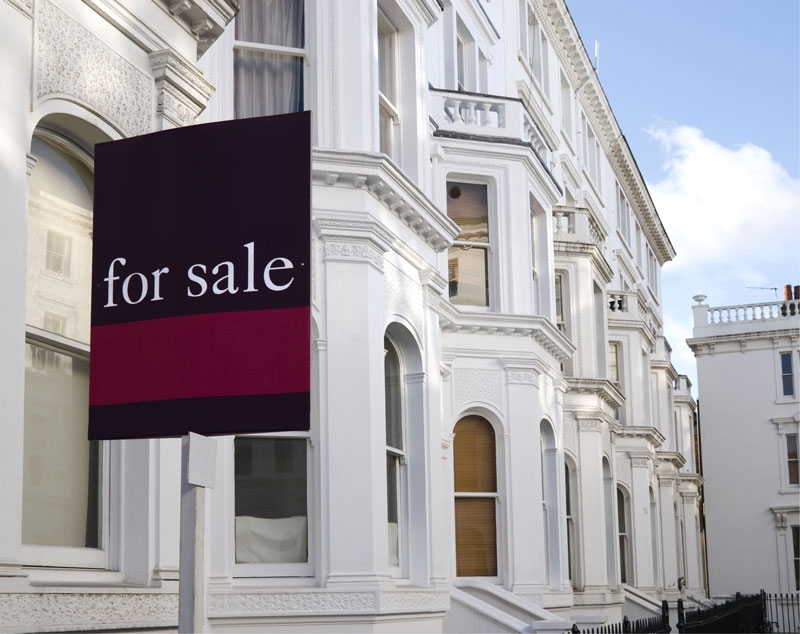First-time Buyer
Asking prices fall in August as housing market dips

Asking prices for properties coming to market have fallen for the first time this year with sellers asking for 1.3% less this month than in July, according to Rightmove.
The average asking price in August so far is £365,173 marking a decline of £4,795 in value from the previous month.
The property search firm said the drop in August was normal for this time of year and in line with the average summer monthly declines seen over the last 10 years.
Despite rising costs and interest rates putting a damper on the market, Rightmove said the fall in asking prices was most likely down to people putting their moving plans on hold as they focused on the summer holidays. The firm also said sellers who were continuing to put their homes on the market were probably pricing their homes competitively to attract buyers.
Tim Bannister, Rightmove’s director of property science, said: “A drop in asking prices is to be expected this month, as the market returns towards normal seasonal patterns after a frenzied two years, and many would-be home movers become distracted by the summer holidays.
“Nevertheless, we’re still expecting price changes for the rest of the year to continue to follow the usual seasonal pattern, which means we’ll end the year at around seven per cent annual growth, even with the wider economic uncertainty.”
Annually, asking prices are up by 8.2%.
Sarah Coles, senior personal finance analyst at Hargreaves Lansdown, said there were signs the falls in asking prices would continue.
Although buyer levels are still elevated, Coles said the Royal Institution of Chartered Surveyors (RICS) residential survey published last week highlighted that “these aren’t the same kinds of buyers as we saw during the boom”.
She added: “They’re more cautious, more sensitive to what’s going on in the wider world, and are more likely to pull out of sales because of rising prices, increasing rates and more job insecurity.
“It also found that even when an asking price doesn’t move, sellers may have to accept lower offers to shift a property – particularly at the more expensive end of the market. It means the drop in the prices being accepted by sellers may be even bigger than the official cut in the asking price.”
Rising costs not a deterrent
Rightmove said a “mismatch” between supply and demand was also influencing asking prices, although this was softening. The number of listings has risen by 12 per cent compared to last year but is down by 6% when compared to 2019. Further, the number of homes available for sale are down by 39% on 2019.
Meanwhile, the firm said although buyer demand had fallen by four per cent annually, it is still 19% up on 2019. Rightmove said buyers did not appear to be concerned about the recent base rate rise to 1.75% and seemed to be incorporating this into their financial planning.
Rightmove noted that rising house prices coupled with increasing interest rates meant the average monthly mortgage payments for first-time buyers with a 10% deposit exceeded £1,000 for the first time. The firm said this now stood at £1,032 and was 27% higher than the start of 2022.
Despite this, demand for properties which are typically purchased by first-time buyers is up 32%on the same period in 2019.
The average asking price for first-time buyers fell by 0.4 per cent to £224,091.
Bannister added: “Several indicators point to activity in the market continuing to cool from the lofty heights of the last two years. It’s likely that the impact of interest rate rises will gradually filter through during the rest of the year, but right now the data shows that they are not having a significant impact on the number of people wanting to move.
“Demand has eased a degree and there is now more choice for buyers, but the two remain at odds and the size of this imbalance will prevent major price falls this year.”
Nathan Emerson, chief executive of estate agency trade body Propertymark, said: “House prices remain high, and this trend is set to stay that way in the short-term. There continues to be a large imbalance of buyer demand to housing stock levels, but the market is sustaining itself.
“As we have seen much of during the pandemic, the lifestyles of many buyers continue to change meaning homes in more rural locations are still seeing high levels of activity and the prices achieved.
“The property market will undoubtably still see the gradual impact of the increases to the cost of living and interest rate rises which play a key factor in affordability. This should start to bring activity to a more even keel towards the end of the year.”